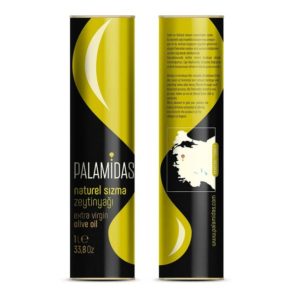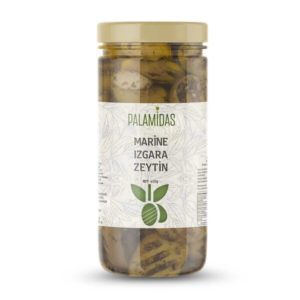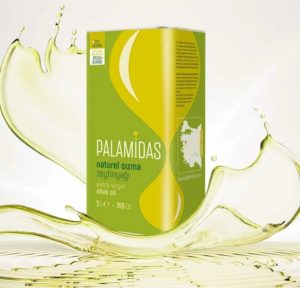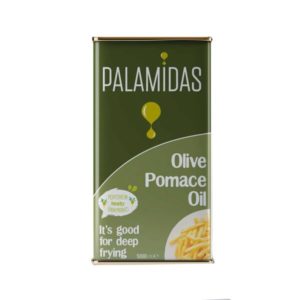High Quality Turkish Table Olives

Table Olives
Freshly hand picked from its tree. Olive types that are endemic to the Akhisar region of Aegean Coast of Turkey, are known for their plumpness and high content of oil. Olives have a very bitter taste before being cured. Therefore, they are cured in brine or dry salt depending on the desired product, for at least 6 months. Fresh Trilye, Uslu and Domat olives are cured only in brine and no additives or chemicals are used. Wide choice of table olive types are available.
- Black Olives
- Green Olives
- Lemon or Orange Filled Green Olives
- Grilled Green Olives
- Dry Cured Black Olives
- Oil Cured Black Olives

All you need to know about Turkish Table Olives
Table olives are a pickled food made from drupes that have been partially or totally destined and then fermented. Because of Turkish table olives unusual taste and feel, they are often used as appetizers or ingredients in cooking, especially in Europe.
What a good table olive should have:
The first thing we notice about a Private Label Turkish Table Olives is, of course, how it looks. This is an important part of the product that will help us decide whether or not to try it. The physical and chemical properties, which can be measured by Bulk Turkish Table Olives Supplier with tools, can be discussed here.
Organoleptic characteristics of a food, which describe its flavor, include how it smells (olfactory), tastes (gustatory), and feels in the mouth (masticatory) (tactile).
Smell: A well-done High-Quality Turkish Table Olives has a clean, pleasant smell. Most of the volatile components come from the fermentation process, so the smell will tell you a lot about how the process was handled. Since there was no fermentation, the smell is usually from the added ingredients, like garlic, herbs, and other flavorings.
Texture/Tactile: The flesh of the olive should be firm but not hard or woody. The fruit’s skin shouldn’t be too tough, and the meat shouldn’t be hard to pull away from the pit. The texture of a Custom Packaged Turkish Table Olives depends on many things, but the most important ones are how ripe the fruit was when it was picked and what kind of olive tree it came from. How the fruit is processed is just as important because it can keep or change its texture.
Taste: Taste and flavor are usually personal since they depend on what a person is used to. When it comes to table olives, people who aren’t used to them usually like a more bland product supply by Turkish Table Olives for Food Service. Once people get hooked on these little treats, they look for things with a lot more flavor, especially the natural olive flavor.
How to recognize quality table olives:
The market for table olives in Turkey is just beginning to grow. The strong foundation Family-Owned Turkish Table Olive Producer will help it become a valuable and successful industry in the new olive-growing countries.Table olives must meet a set of standards or conditions, checked in a private label table olives producer and by a tasting panel, to be called “Table Olives.” The International Olive Oil Council (IOOC) has made rules about how Table Olives should look, specifically how many defects they can have. However, there isno rule about how a good Olive should taste.
There are many kinds of Table Olives on the world market, many of which are local or provincial. In places where eating olives and especially processing them is still fairly new, it is important to have a standard to judge the quality of a Gourmet Turkish Table Olives. Just as important is that the Private Label Table Olives Manufacturer consumer knows what to look for in a tasty, high-quality table olive.
Method of making Table olives:
- Green Olives Fully prepared in Brine: Olives are treated with alkaline lye and then packed in Brine, where they go through a full (Sevillian or Spanish-style) or partial lactic fermentation. In the second case, they can be kept at a certain pH by sterilizing, pasteurizing, refrigerating, adding preservatives, or using an inert gas (without Brine)
- Green Olives in Brine, Not Treated: In Greek or Sicilian cooking, Artisanal Turkish Table Olivesare put straight into 8–10% brine, which keeps them fresh.
- How Brine Changes the Color of Olives: Olives are cleaned with alkaline lye and kept fresh either by letting them ferment in salt water or heating them.
- Olives in Brine that change color on their own: Olives are put right into 8–10% brine, and natural fermentation keeps them from going bad.
- Black Olives Prepped in Brine: Olives are treated with alkaline lye and then kept fresh by letting them ferment naturally in Brine, sterilizing or pasteurizing them, or adding a preservative.
- Black olives that were cured in dry salt: Firm olives that are almost ripe are treated with a little bit of alkaline and then stored in layers of olives and dry salt.
- Black Olives in Brine, Not Touched: Organic Turkish Table Olives are put right into Brine and kept fresh by letting them ferment in the Brine, sterilizing or pasteurizing them, or adding a preservative.
- Black olives in dry salt that haven’t been treated: Olives that have dried out on the tree and are fully ripe are put right into Brine.
- Untreated Black Olives with Holes in Dry Salt: Fully ripe Imported Turkish Table Olives are pierced and then stored in layers of dry salt or sprinkled on top.
- Black Olives that have been dried out: Ripe olives are blanched at 95°C for 1–2 minutes to soften them. They are then partially dehydrated in salt and dried in the sun or oven at 50°C.
- Oxidation makes olives darker: Californian Style:Black, ripe Turning Color olives are cleaned with alkali lye, darkened by oxidation, packed in Brine, and sterilized with heat.
- Blistered Olives: Fresh Turkish Table Olives or olives treated with Brine (usually ones still green) are hit with a blunt object on purpose. You can add flavours and vinegar.
- Olives, Split: These are green, black olives cut in half lengthwise through the skin and some of the flesh and then put in Brine with or without vinegar. Olive oil and other smelly things can be added.
- Heat-Sealed: Ripe olives are dried in an oven at 50°C or by air until they are not too bitter. The dried olives can be eaten as they are or with alternating layers of salt on them.
- Black olives soaked in olive oil: Extra virgin olive oil is packed into heat-cured or salt-dried olives.
- The water: Hand-Picked Turkish Table Olives are washed and rinsed often for up to six weeks, and Brine is used to keep them from going bad.
Conclusion:
Ultimately, the most important thing to know is that table olives vary a lot when it comes to the things they’ve discussed so far. It’s up to the Sustainable Turkish Table Olive Production consumer to try as many different styles and flavors as possible and build a profile of their favorite olives. Exclusive Turkish Table Olive Brand can make better decisions about this choice if they know what makes a product good.
OUR PRODUCTS
Extra Virgin Olive Oil

Palamidas Extra Virgin Olive Oil” is our standard olive oil. Just like Cold-Pressed,olives are picked by hand from our own olive gardens and processed with extra care. Our extra Virgin Olive Oil is pressed in ideal temperatures to produce a golden green oil that can retain its olive flavor.Very specific standards have to be met for an olive oil to receive the label Extra Virgin. This type of oil is best used in salad dressings, seasonings and raw consumption but can be also used in cooking
Pure Olive Oil

Pure olive oil is a blend of extra virgin olive oil and processed oils. Light oils are often processed and refined, which strips down the color as well as the flavor. Processing makes the oil last longer, and it also makes it possible to heat the oil to a higher temperature, which is good for cooking.
Virgin Olive Oil

That said, most people agree that extra virgin olive oil is incredibly healthy. Studies show that the fatty acids and antioxidants in olive oil can offer some powerful health benefits, including a reduced risk of heart disease
Olive Pomace Oil

Pomace Oil is a type of oil that is refined from pomace of olive oil. This type of oil is best for frying purposes for it has a high smoke point.



